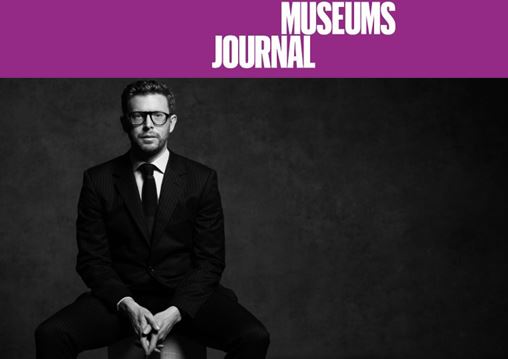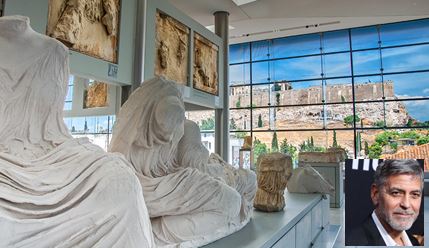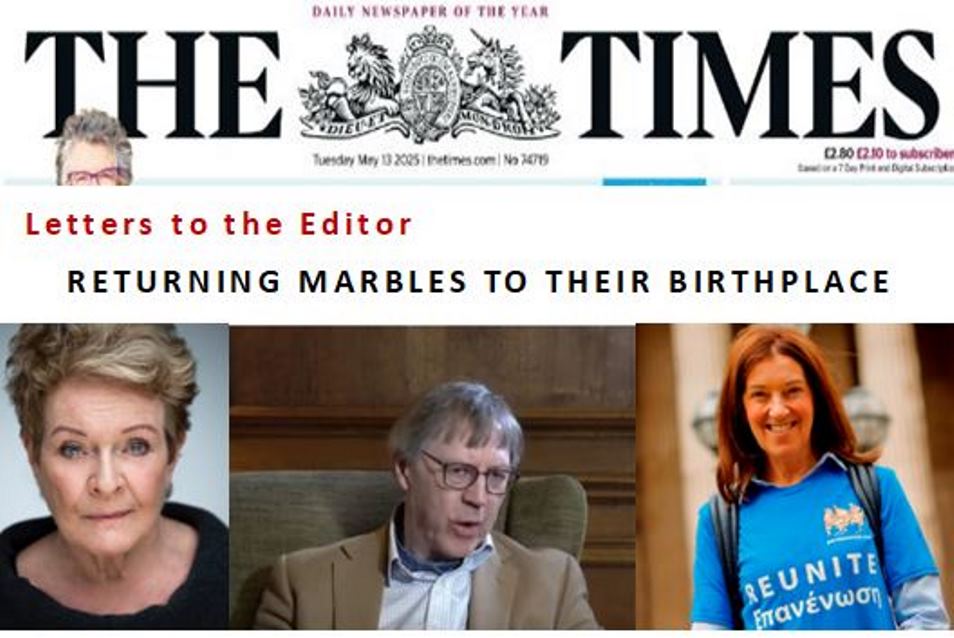On the 1st of December, in the Art Newspaper, Martin Bailey wrote that the London National Gallery's had cancelled their partnership with Pushkin Museum. The two institutions were to have jointly presented next year’s exhibition After Impressionism: Inventing Modern Art, but the arrangement was terminated in March, following the Russian invasion of Ukraine.
Martin Bailey writes: "Marina Loshak had taken over as the Pushkin’s director in 2013 from Irina Antonova, then 91, who had joined the museum back in 1945. During the Cold War and its aftermath, the Pushkin was isolated from the museum world, but Loshak has been determined to develop its international links. After Impressionism was a key element of her strategy." To read the full article, follow the link here.
It was in 2014 that the then Director of the British Museum Neil MacGregor agreed to send the River God Ilissos to the Hermitage Museum as a loan and for the 200th annivrsary of the museum in St Petersburg, this was just months after Russia had annexed Crimea.
Neil MacGregor, former Director, stated in public interviews at that time, that the British Museum had not consulted with the FCO ahead of agreeing the loan, while the Museum’s website explains that Trustees “immediately accepted” the Russian invitation upon receiving it.
Despite these comments the British Museum refused to release the request for the loan from the Hermitage Museum claiming that doing so would “be likely to prejudice relations between the United Kingdom” and the Russian Federation.
In their response to the BCRPM’s FOI request the British Museum went on to say “The State Hermitage Museum is a national museum which forms part of Russian Government administration, and any requests made by its staff in relation to this loan were made in private correspondence to curators at the British Museum, in the reasonable expectation that any such correspondence would remain confidential.
In applying the public interest test to this case, the Museum recognises that there is a public interest in disclosure because of active interest in the Museum’s loans programme, and in this object. However, the Museum takes the view that if it were to release this information at this time, it adds little to public understanding of the relevant issues but could adversely influence diplomatic relations between the UK and Russia.”
BCRPM campaigners were exasperated at the inconsistency between the Museum’s public line, claiming that the loan was purely a cultural exchange between cultural institutions, and that taken by their legal department suggests that this was in fact about real politics.
“While cultural exchange can be an enormous force for peace, what was surely a well-intentioned notion, though hotly contested at the time, now looks like a grotesquely naive failure to steward these hugely important symbols with appropriate care.
It’s shocking that the British Museum will not even come clean about what can only be seen as a great cultural coup for Mr Putin.” Dame Janet Suzman, Chair of BCRPM.
“We at the British Committee for the Reunification of the Parthenon Marbles hope that under new leadership the British Museum will take the opportunity to respond with openness and maturity to the peaceful calls for reunification, rather than risking that our shared human heritage be used to burnish the reputations of regimes such as these.
The Acropolis Museum has now been opened to the public for 13 years and six months, and has welcomed millions of visitors from all over the globe. There are no reasons left in the British Museum’s armoury to keep this incomparable work of art divided, and mainly between two great museums. The BM is in a unique position to show ethical leadership in tune with the times and the ‘universal’ values that it espouses. It’s time to reunify these sculptures.” Professor Paul Cartledge, Vice-Chair of BCRPM.





Comments powered by CComment